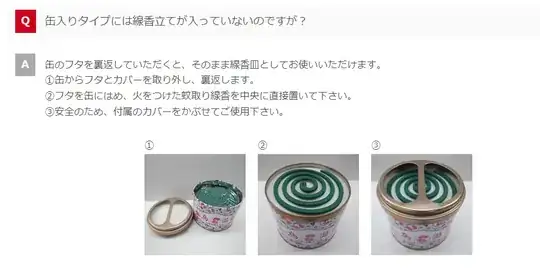A passage from the second chapter of 夜は短し歩けよ乙女 by 森見登美彦:
先ほどまで、ご主人は奥さんと一緒に本棚に囲まれた内側にいて、レジを打っていました。私と樋口さんが姿を見せると、あとを大学生のアルバイトに任せて出てきてくれました。そして案内されたのは店舗の背後にある木立の奥です。そこには缶に入れた蚊取り線香の煙がふんわり漂い、小さなテーブルと椅子が置いてあって、午後のお茶会に好適な「森の隠れ家」になっていたのです。
I don't understand why 入れた was chosen over 入った. Does it imply that ご主人 put the incense in the can after showing the narrator and 樋口さん to the back? Or does it just neutrally mean "incense in a can"?
I feel comfortable with the phrase ~のことを書いた本 referenced by this question.
